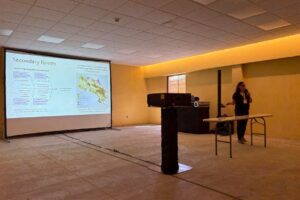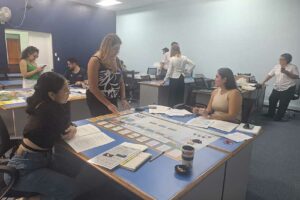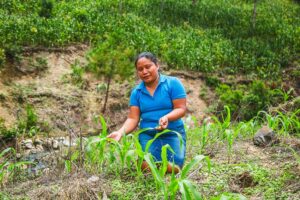CIENPINOS project successfully concludes first municipal governance workshop in Cienfuegos, Cuba
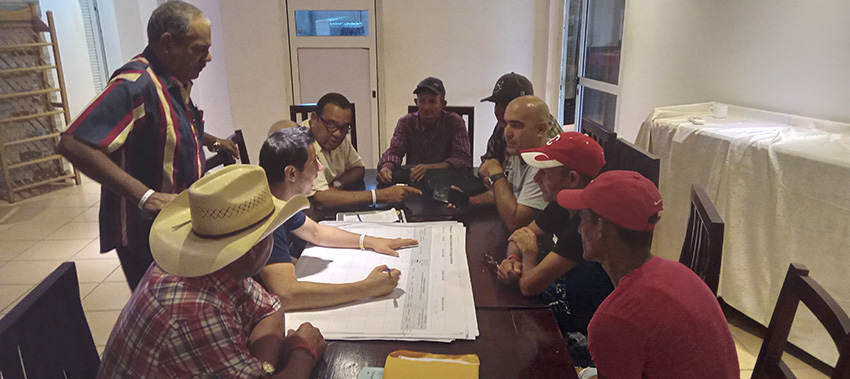
- Climate risks and impacts in the Cuban province analyzed.
July 18, 2023. Analyzing the vulnerabilities faced by agricultural production and natural resources in the face of climate change affecting the Cuban archipelago was the objective of the first Climate Governance Workshop of the CIENPINOS project. The event took place in the Cuban province of Cienfuegos from July 10 to 14.
Using a "learn-by-doing" approach, specialists from the Climate Action Unit (CAU) of CATIE (Tropical Agricultural Research and Higher Education Center), from Costa Rica, applied a methodology to gather information about various characteristics of the municipalities of Abreus and Cumanayagua, where the CIENPINOS project is implemented in Cienfuegos, as well as the climate risks and impacts manifested there.
In a practical exercise, the collected data were plotted on maps with the participation of local actors and assistance from facilitators trained by CATIE specialists. Simultaneously, preliminary measures were announced that could define, following analysis, the routes of adaptation and mitigation against the vulnerabilities identified in the Cuban municipalities.
Andrea Zamora, specialist of CATIE's CAU, affirmed that the purpose is to provide the municipalities with a tool that allows them to base their timely and appropriate decisions on scientific evidence, which could even be included in local development strategies.
"It is just the beginning of a project that will consider traditional knowledge and will enhance the production of two value chains, using nature-based solutions. These chains are: the creole pig in Pinar del Río, and goats in Cienfuegos. All this will benefit rural families and local entrepreneurs", stated Ismael Hernández, international coordinator of the CIENPINOS project.
For her part, Tania Sánchez highlighted that this is a participatory project, demanding the involvement of many disciplines due to its comprehensive objectives. "Here, the environment and productive systems are linked, but, above all, there is a lot of work with local governments and producers in particular", Sánchez affirmed.
Identifying the vulnerabilities and response measures will allow the creation of local capacities to minimize the impacts of climate change and contribute to sustainability and food security, a premise of CIENPINOS that aligns with policies that Cuba implements in face of the current climate situation.
CIENPINOS is the first project that CATIE implements in Cuba, its local partner being the Experimental Station Indio Hatuey, and it is financed by Swedish Cooperation. The project relies on various actors for its implementation such as universities and specifically Municipal University Centers (MUC), the Local and Community Development Center, and municipal governments, in addition to other scientific and research institutions.
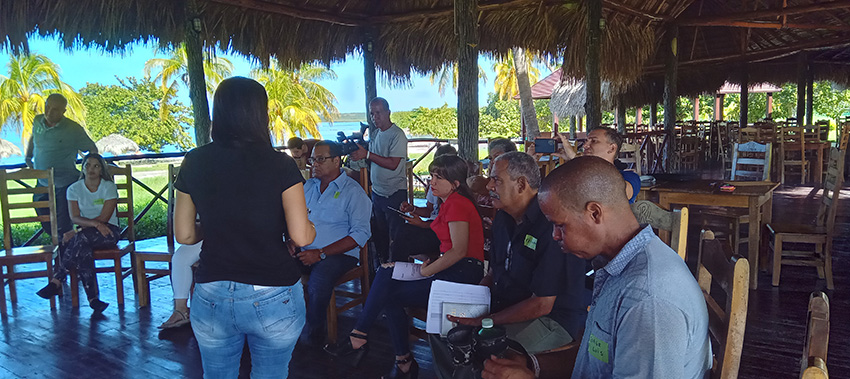
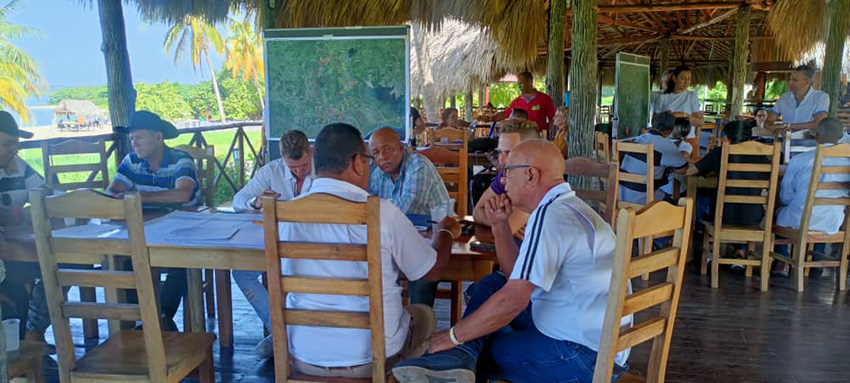
More information:
Ismael Hernández
International coordinator
CIENPINOS Project
Written by:
Raúl Isidrón Pichs
Communicator
CIENPINOS Project
raul.isidron73@gmail.com
Tag:cambio climático, CIENPINOS, Cuba, gobernanza

